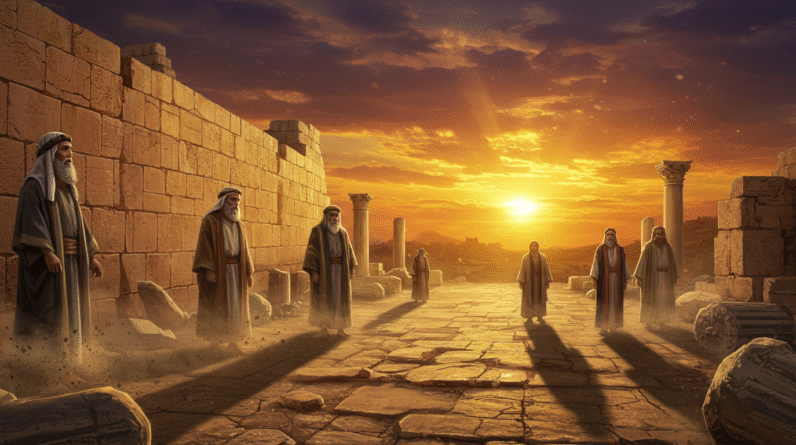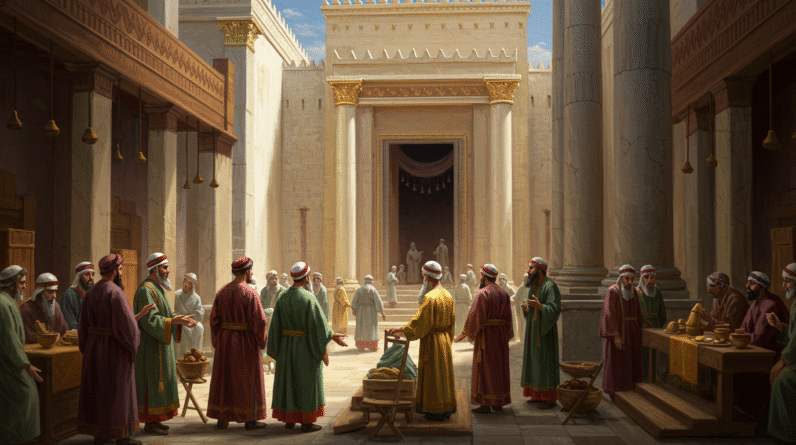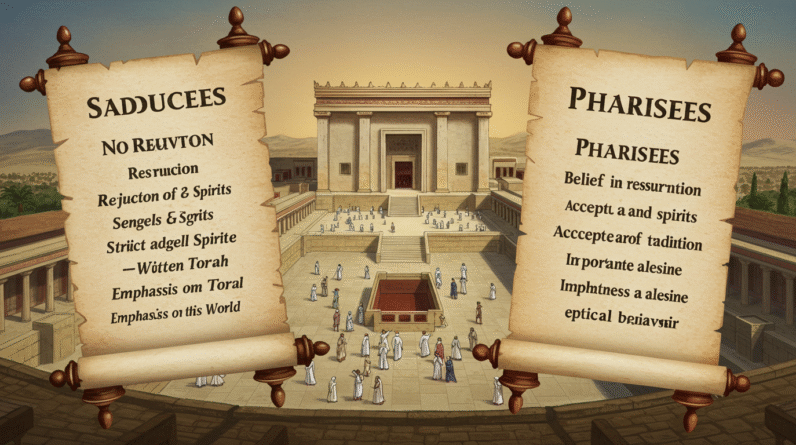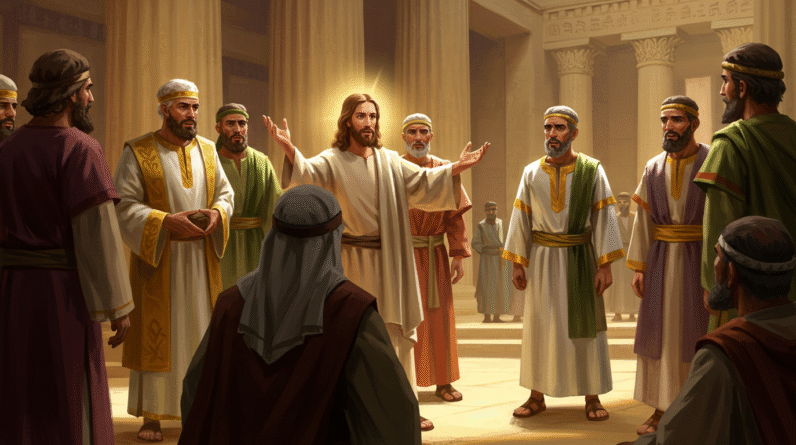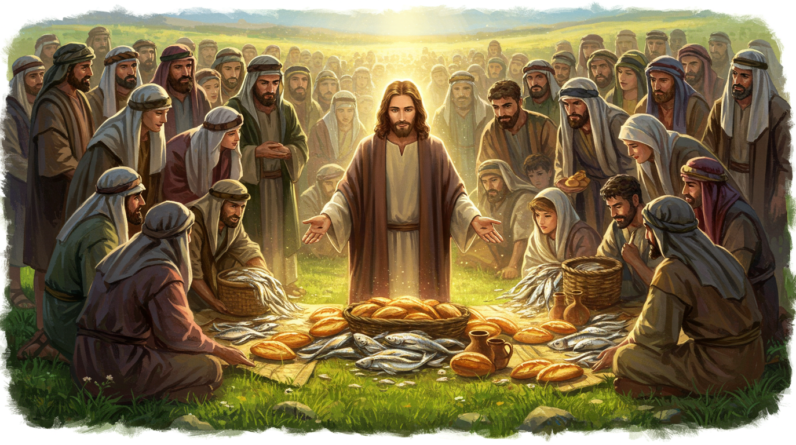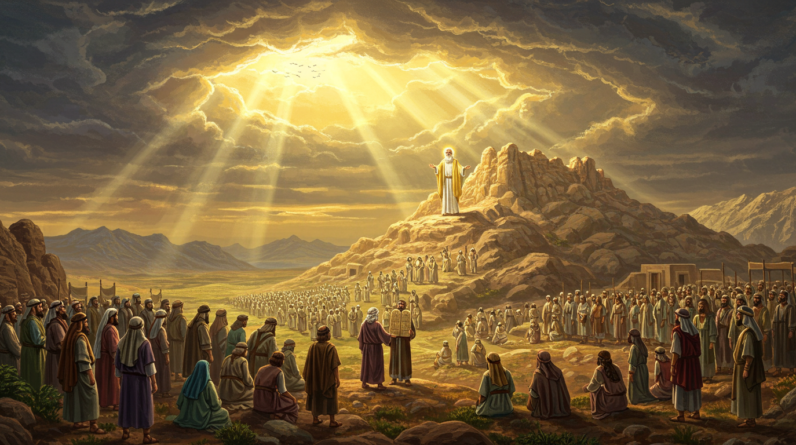The Sadducees and the Resurrection Debate with Jesus
Hey there! Today, we’re diving into a fascinating narrative from the New Testament that features an invigorating debate between Jesus and a group known as the Sadducees. These folks weren’t just any random group; they were a sect of Judaism with a profound influence during Jesus’ time. What really sets this encounter apart is the theme of resurrection—a hot topic that leads to an intense exchange of ideas. So grab a cup of coffee, settle down, and let’s delve into the vibrant setting of this theological showdown.
Meeting the Sadducees: Who Were They?
Before we dig into the actual debate, it’s essential to understand who the Sadducees were. These were members of a Jewish sect that was active during the Second Temple period. Known for their aristocratic standing, they comprised the high priestly class and held considerable sway over temple operations. Unlike the Pharisees, they rejected oral traditions and held a more conservative view of Judaism that focused strictly on the written law—the Torah.
Their theological stance was distinct; notably, they denied the concept of resurrection, angels, and spirits, sticking to what they perceived as essential scriptural truths. This background is crucial for understanding why their encounter with Jesus was so climactic. Imagine a gathering of minds, each holding different beliefs passionately. What you have is a recipe for a spirited debate that revolves around themes of life, death, and the beyond.
The Scene: A Setting for Debate
Let’s picture the scene. It’s a bustling day in the Temple in Jerusalem, a hub of religiosity and intellectual discourse. Groups are gathered, engaging in heated theological discussions. Among them, the Sadducees approach Jesus with a calculated question. You can almost see the curiosity etched on their faces, intertwined with a hint of skepticism. Their aim is not merely to seek knowledge but to challenge Jesus, hoping to expose what they believe to be flaws in his teachings.
This wasn’t an uncommon setting for debates. The Temple was often the stage for such exchanges, particularly during festivals when crowds were larger, and the air was thick with anticipation and excitement. You can almost hear the whispers and murmurs from passersby who lingered to catch this particular confrontation unfold between Jesus and the Sadducees.
The Sadducees’ Question: A Test of Belief
The Sadducees approached Jesus with a question designed to test his understanding and teaching about the resurrection. They presented a scenario rooted in the practice of levirate marriage, as outlined in the Torah. “Teacher,” they began, “Moses wrote for us that if a man’s brother dies and leaves a wife but no children, the man must marry the widow and raise offspring for his brother” Mark 12:19.
Their question unfolded with a hypothetical situation involving a woman who married seven brothers (each dying without leaving offspring). They concluded with a pointed query, “At the resurrection, whose wife will she be, since the seven were married to her?” Mark 12:23.
You can sense their skepticism mixed with intrigue as they lined up all their ducks to challenge Jesus’ teachings on the resurrection. This wasn’t just a random inquiry—it was strategically designed to highlight the Sadducees’ belief that the concept of resurrection led to absurd theological complications.
Jesus’ Response: Confident and Unwavering
This is where the narrative takes a fascinating turn. Jesus, unfazed by their hypothetical trap, responded with clarity that dismantled their reasoning. He began by pointing out their misunderstanding of both the Scriptures and the power of God. “Are you not in error because you do not know the Scriptures or the power of God?” he asked them, Mark 12:24.
Jesus explained that when people rise from the dead, they neither marry nor are given in marriage; they are like the angels in heaven Mark 12:25. This was a striking response because it showcased a different kind of life after resurrection, one that transcends earthly institutions and relationships.
Moreover, he emphasized the living nature of God by referencing the words of Moses from the account of the burning bush, saying, “He is not the God of the dead, but of the living. You are badly mistaken!” Mark 12:27. With this, Jesus not only affirmed the concept of the resurrection but also reinforced the everlasting nature of God’s covenant with His people.
Expressions of Doubt: Unpacking Sadducean Skepticism
The Sadducees’ skepticism didn’t just stem from a mere academic curiosity; it was rooted in their theological framework. By rejecting the oral traditions and interpreting the Torah conservatively, they were wary of ideas that went beyond the text. Their approach to Scripture and rejection of the supernatural aspects, like resurrection, aligned with their pursuit of tangible religious practices.
Even though their question seemed designed to embarrass Jesus, it inadvertently illuminated their profound doubts about the ideology of resurrection. You can imagine their expressions of doubt as they listened to Jesus, perhaps a mix of frustration and contemplation, as they were confronted with new interpretations that challenged their long-held beliefs.
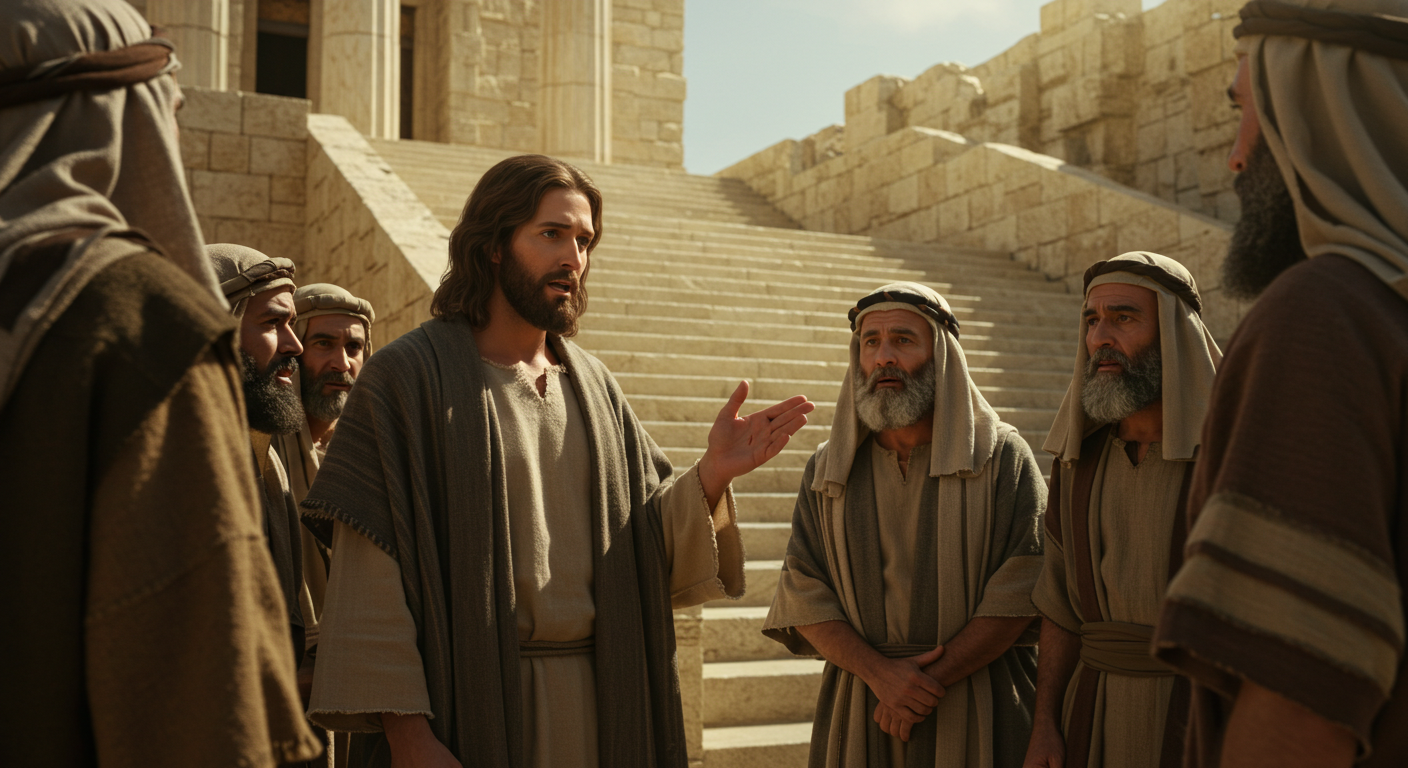
Theology in Action: Jesus Teaching about Resurrection
The encounter offers a vivid portrayal of theology in action. Picture Jesus, standing amidst a crowd, speaking with an authority that compels the audience to ponder deeply. His teaching wasn’t just theoretical but transformative. By illustrating a vision of life after resurrection that surpasses earthly understandings, Jesus provided not just answers but a new lens through which to view life, death, and eternity.
He also brought into focus the character of God as a living force, present and potent. This teaching wasn’t just meant for the Sadducees but extended to the listeners on the fringes, inviting them to reconsider their understanding of divine power and promises.
A Lively Debate: Banter and Revelation
The debate between Jesus and the Sadducees can be visualized as a lively exchange, rich with banter and revelation. It’s not just a meeting of theological minds but a clash of worldviews. You can almost imagine the energy in the air as words pass back and forth, each side standing firm in their convictions.
For a moment, let’s place ourselves in the crowd. How might we react to this debate? Would we align ourselves with the logical nuances of the Sadducees or find ourselves drawn to the revolutionary ideas Jesus presented? These debates weren’t just historical incidents; they are timeless discussions that continue to resonate with us today.
The Aftermath: Reactions and Implications
The conclusion of this debate left a lasting impression. Jesus’ teachings challenged the status quo and stirred a reaction not just within the Sadducees but also among the broader audience who witnessed the discussion. It’s likely some left the scene pondering deeply, while others perhaps solidified their positions, whether in opposition or agreement with Jesus’ teachings.
This debate with the Sadducees showcases more than just a theological argument—it reflects on the profound impact of Jesus’ words on those around him. It urged people to reconsider comfortable beliefs and confront the possibilities of a divine reality beyond immediate human comprehension.
Today’s Takeaway: Understanding and Application
As we reflect on this encounter, it poses questions about how we approach and understand theological concepts even today. It’s a reminder to engage with teachings critically yet open-heartedly, allowing our beliefs to be challenged and enriched.
The Sadducees’ resurrection debate with Jesus offers an invitation to explore our perspectives. What preconceived notions about life, death, and faith do we hold? And how open are we to new interpretations that might deepen our spiritual understanding?
Conclusion: Engage, Reflect, and Share
This lively debate between Jesus and the Sadducees is more than an ancient theological discourse; it’s a call to engage intellectually and spiritually. It invites you to explore and question, ensuring your faith is not static but a living, breathing entity.
Explore More
For further reading and encouragement, check out these posts:
👉 7 Bible Verses About Faith in Hard Times
👉 Job’s Faith: What We Can Learn From His Trials
👉 How To Trust God When Everything Falls Apart
👉 Why God Allows Suffering – A Biblical Perspective
👉 Faith Over Fear: How To Stand Strong In Uncertain Seasons
👉 How To Encourage Someone Struggling With Their Faith
👉 5 Prayers for Strength When You’re Feeling Weak

📘 Jesus and the Woman Caught in Adultery – Grace and Mercy Over Judgement
A powerful retelling of John 8:1-11. This book brings to life the depth of forgiveness, mercy, and God’s unwavering love.
👉 Check it now on Amazon
As a ClickBank Affiliate, I earn from qualifying purchases.
Acknowledgment: All Bible verses referenced in this article were accessed via Bible Gateway (or Bible Hub).
“Want to explore more? Check out our latest post on Why Jesus? and discover the life-changing truth of the Gospel!”



